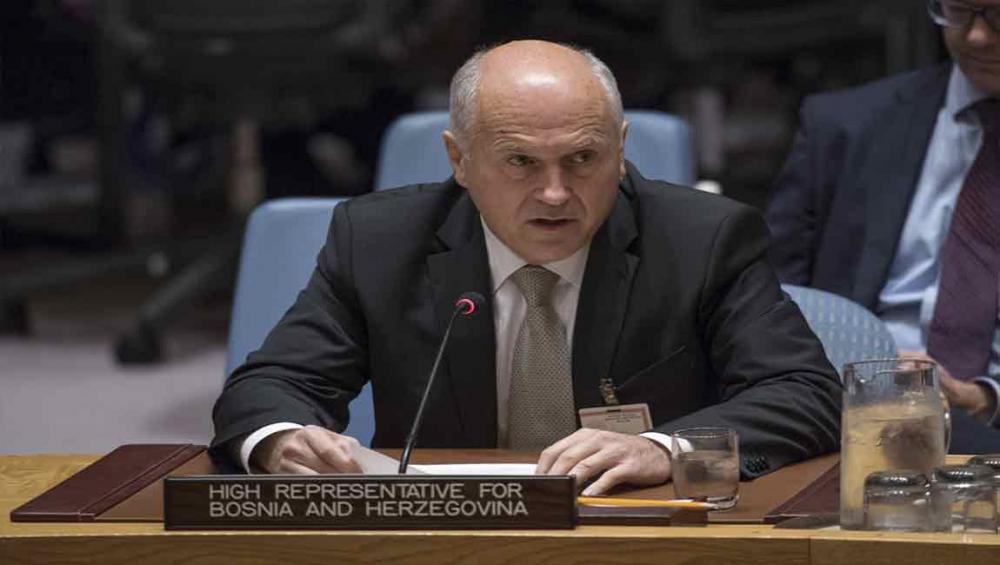Just Earth News | @Just Earth News | 08 Nov 2017

Cia Pak
“Bosnia and Herzegovina is a complex political and security environment, where negative scenarios can quickly endanger the Dayton Peace Agreement and the progress achieved so far,” Valentin Inzko, the High Representative for Bosnia and Herzegovina, told the Security Council.
“For this reason, I am firmly convinced that there is still the necessity to maintain the EU military force on the ground with an executive mandate,” he said.
Unanimously adopting a resolution, the 15-member Council recognized the right of both European Union Force Althea (EUFOR ALTHEA) and the North Atlantic Treaty Organization (NATO) presence to take all necessary measures to defend themselves from attack or threat of attack and authorized Member States to assist both organizations in carrying out their missions.
The Council also urged all parties to step up the implementation of comprehensive reforms, in an inclusive manner, to the benefit of all citizens and in line with the European perspective the country is committed to, calling on them to refrain from any polarizing policy, action and rhetoric.
Inzko noted that more than 25 years have passed since Bosnia and Herzegovina joined the United Nations in 1992, and more than two decades have passed since the tragic conflict came to an end in 1995.
The country has since made remarkable progress in many ways, he said, highlighting that the state institutions provided for under the Peace Agreement were established and the three armies that fought each other were unified into one.
Today the country is at a crucial moment in its history, as leaders of all ethnic affiliations aspire to join the European Union and are working towards fulfilling the requirements necessary for the country to be granted EU candidate status, he said.
However, he continued, “As progress on economic and political reforms has significantly slowed down over the last ten years, divisive nationalism and persistent challenges to the Peace Agreement and the institutional arrangements provided for under that agreement have threatened to take the country backwards.”
Over the last six months, many key political actors in Bosnia and Herzegovina have been unwilling to search for the compromises needed to adopt necessary reforms.
And with the general elections expected to take place next year, many political leaders have already started exchanging divisive rhetoric rooted in the past and an early electoral agenda have slowed the pace of reform and affected the political climate, he said.
In July, the Constitutional Court struck down provisions of the election law regulating indirect elections to the Federation House of Peoples. If the House is not formed after the next elections, this will most likely prevent the formation of a Federation government and the formation of one chamber of the state-level parliament.
“I want to call attention to this issue now, while there is still time for the parties in parliament to address the problem ahead of the 2018 elections,” he said.
Also, in October, the Republika Srpksa National Assembly adopted a resolution which asserts the entity’s neutrality vis-a-vis integration with NATO.
He insisted that foreign policy is an exclusive responsibility of the state institutions.
In conclusion, Inzko outlined the major challenges for the political leaders and institutions in Bosnia and Herzegovina.
These include completion of the actions needed to achieve the next steps in Euro-Atlantic integration, ensuring that the 2018 elections can be held and their results implemented smoothly, and the rule of law under which the decisions of courts and the Dayton Peace Agreement are respected and implemented, he said.